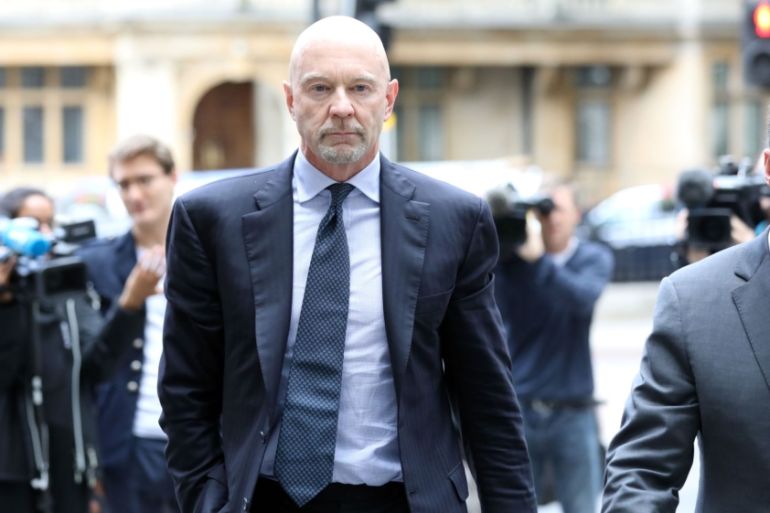Ex-Barclays executive: Qatar wanted to be bank’s ‘special’ Gulf
Prosecutors allege the Barclays bankers did not properly disclose 322 million pounds of extra payments to Qatar.

At a fraud trial over undisclosed payments by Barclays, Roger Jenkins, one of its former executives, said Qatar had wanted to be the British bank’s “special” Gulf partner in 2008.
The former head of Barclays’ Middle East business, and co-defendants Tom Kalaris, who ran its wealth division, and Richard Boath, a former head of European financial institutions, deny conspiring to commit fraud by false representation and fraud by false representation.
Keep reading
list of 3 itemsBarclays cuts ties with US-based crypto exchange
Emir says Qatar has overcome obstacles of Gulf blockade
Giving evidence for the first time in the landmark London case, Jenkins, 64, said on Monday he first met former prime minister Sheikh Hamad bin Jassim bin Jabr Al Thani, who was also head of Qatar’s sovereign wealth fund, in July 2007 in Sardinia.
Jenkins said the two men had dinner on a boat on the Italian island and met subsequently on the French Riviera at Cannes, in Los Angeles, Doha, and London to discuss business deals in retail, real estate and banks as their relationship developed.
The case revolves around how Barclays avoided the fate of Lloyds and Royal Bank of Scotland and averted a state bailout with 11 billion pounds ($14bn) of fundraising in June and October 2008.
Prosecutors allege the bankers lied to the market and other investors by not properly disclosing 322 million pounds ($415.4m) of extra payments to Qatar, disguising them as “bogus” advisory services agreements.
Neither Qatar, a major investor in the United Kingdom, nor Sheikh Hamad, are accused of any wrongdoing.
When Barclays started to look around for cornerstone investors during the financial crisis, Jenkins – who was known as “Big Dog” by colleagues – wanted to bring in Qatar, which was seeking to diversify its vast oil and gas wealth.
On May 14, 2008, Kalaris emailed Jenkins to ask whether Sheikh Hamad had “any sensitivity” about Barclays approaching other potential investors, such as Abu Dhabi or Kuwait, or whether he wanted to be an exclusive Middle East player.
Jenkins, who read his emailed response out in court, said: “Oh yes he won’t like that. He wants to be (the) special Gulf guy.”
But Qatar had also watched RBS’s steeply discounted emergency rights, Jenkins said and was a tough negotiator.
“They will have seen the RBS rights issue with a 42 percent discount, so they would be pushing us as hard as possible to apply that discount to this transaction and apply an appropriate fee to this transaction,” Jenkin’s told the jury.
The one-time graduate trainee rose to prominence at Barclays’ structured capital markets division by helping clients navigate tax rules.
Qatar’s sovereign wealth fund was only set up in 2005. At the time of Jenkin’s involvement, the fund was booming and seeking investments. And as cracks appeared in global financial markets, Sheikh Hamad became increasingly interested in investing in banks, Jenkins said.
Jenkins, who described his relationship with Sheikh Hamad as close, is due to continue giving evidence in a trial scheduled to last around five months.